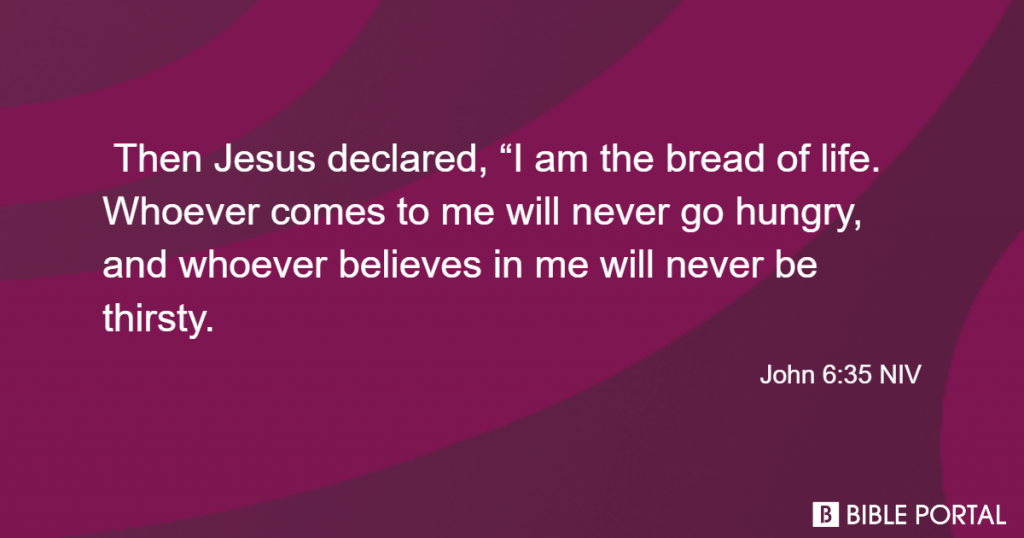
First, he shows that the bread, which they asked in mockery, is before their eyes; and, next, he reproves them. He begins with doctrine, to make it more evident that they were guilty of ingratitude. There are two parts of the doctrine; for he shows whence we ought to seek life, and how we may enjoy it. We know what gave occasion to Christ to use those metaphors; it was because manna and daily food had been mentioned. But still this figure is better adapted to teach ignorant persons than a simple style. When we eat bread for the nourishment of the body, we see more clearly not only our own weakness, but also the power of divine grace, than if, without, bread, God were to impart a secret power to nourish the body itself. Thus, the analogy which is traced between the body and the soul, enables us to perceive more clearly the grace of Christ. For when we learn that Christ is the bread by which our souls must be fed, this penetrates more deeply into our hearts than if Christ simply said that he is our life
It ought to be observed, however, that the word bread does not express the quickening power of Christ so fully as we feel it; for bread does not commence life, but nourishes and upholds that life which we already possess. But, through the kindness of Christ, we not only continue to possess life, but have the beginning of life, and therefore the comparison is partly inappropriate; but there is no inconsistency in this, for Christ adapts his style to the circumstances of the discourse which he formerly delivered. Now the question had been raised, Which of the two was more eminent in feeding men, Moses or Christ himself? This is also the reason why he calls it bread only, for it was only the manna that they objected to him, and, therefore, he reckoned it enough to contrast with it a different kind of bread The simple doctrine is, “Our souls do not live by an intrinsic power, so to speak, that is, by a power which they have naturally in themselves, (145) but borrow life from Christ.”
He who cometh to me. He now defines the way of taking this food; it is when we receive Christ by faith. For it is of no avail to unbelievers that Christ is the bread of life, because they remain always empty; but then does Christ become our bread, when we come to him as hungry persons, that he may fill us. To come to Christ and to believe mean, in this passage, the same thing; but the former word is intended to express the effect of faith, namely, that it is in consequence of being driven by the feeling of our hunger that we fly to Christ to seek life.
Those who infer from this passage that to eat Christ is faith, and nothing else, reason inconclusively. I readily acknowledge that there is no other way in which we eat Christ than by believing; but the eating is the effect and fruit of faith rather than faith itself. For faith does not look at Christ only as at a distance, but embraces him, that he may become ours and may dwell in us. It causes us to be incorporated with him, to have life in common with him, and, in short, to become one with him, John 17:21.) It is therefore true that by faith alone we eat Christ, provided we also understand in what manner faith unites us to him.
Shall never thirst. This appears to be added without any good reason; for the office of bread is not to quench thirst, but to allay hunger. Christ therefore attributes to bread more than its nature allows. I have already said, that he employs the word bread alone because it was required by the comparison between the manna and the heavenly power of Christ, by which our souls are sustained in life. At the same time, by the word bread, he means in general all that nourishes us, and that according to the ordinary custom of his nation. For the Hebrews, by the figure of speech called synecdoche, use the word bread for dinner or supper; and when we ask from God our daily bread, (Matthew 6:11,) we include drink and all the other parts of life. The meaning therefore is, “Whoever shall betake himself to Christ, to have life from him, will want nothing, but will have in abundance all that contributes to sustain life.”
